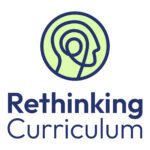
This article has been published as part of the Rethinking Curriculum project, kindly funded by The Helen Hamlyn Trust.
This is a collection of research articles, case studies, webinars and other relevant resources to further develop your understanding of approaches that inform and/or promote pupil voice and agency. We have ensured that these are open access or available to members of The Chartered College of Teaching.
The resources collated here will not provide a recipe for what you should do. Some of the articles will also present opposing viewpoints, and ones which may contradict your own viewpoint or experience. They will provoke thought, debate and discussion. We encourage you to read and appraise the literature to make informed decisions based on your local context, professional experience and other available research evidence.
Resources from the Chartered College of Teaching
N.B. Please note that non-members can only access three articles per month. Join today to get full access to all resources provided on our platform.
- This article explores some of the theory and research evidence around pupil agency and outlines a new line of research in this area.
- This perspective article highlights the importance of children’s agency in education and explores how the pedagogies of Montessori, Reggio Emilia and Mantle of the Expert can promote this agency.
- This case study outline’s one Trust’s approach to designing and implementing a curriculum that promotes pupil agency.
- This case study outlines one secondary school’s journey in using pupil voice to inform and improve their teaching and learning strategy. Whilst this is a secondary school case study, there may be learnings for primary settings.
- This article explores the relationship between pupil agency and sustainability education.
- This article introduces a framework that can guide teachers in creating assessments that support the development of pupil agency in primary schools.
Other resources and articles freely available from other providers
- This article, written by Dominic Wyse and Yana Manyukhina, summarises the findings of a recent study conducted with three contrasting primary schools in England. Most notably, children in all three schools consistently expressed a desire for more choice in their education.
- This blog post provides further insight about the definition of ‘agency’ and what research should be done in this area.
- In this video presentation, Dame Alison Peacock explores the importance of pupil voice and agency. Drawing on her experience of teaching, headship and involvement in various research projects, she outlines the ethic of Learning without Limits which is underpinned by trust, co-agency and inclusionAn approach where a school aims to ensure that all children are educated together, with support for those who require it to access the full curriculum and contribute to and participate in all aspects of school life.
- This report, produced by the RSA, explores educators’ experiences of engaging with youth social action in practice. It also provides ten case studies from individual primary schools that are effectively facilitating youth social action projects.
- This editorial highlights the importance of children’s voice and agency in a post-pandemic educational landscape.
- This research article considers children’s agency within the framework of children’s rights education. It starts by considering the ways in which agency is conceptualised within the UN Convention on the Rights of the Child (CRC) and the implications for education.
- This research article reports on, and analyses, qualitative researchQualitative research usually emphasises words rather than quantification in the collection and analysis of data. involving children’s therapy in two primary school contexts in England. It aims to explore the potentials of how agency as a concept can contribute to a challenge to existing theory, research and ways of working concerning therapy in primary school contexts.
- This research article draws attention to the experiences of mixed ethnicity children in primary school in the UK. It presents an initial discussion of how children’s agency is both impacted and enhanced by their racialised position.
- This research article reviews the literature to date around pupil voice and agency. It argues for a renewed appreciation of the importance of children’s agency, which could also play a significant positive role in our journey back from the effects of the pandemic.
- This research article reports on the results of the critical discourse analysis examining how children’s agency is discussed in the National Curriculum for England.
- This short video, produced by Helen Hamlyn Centre for Pedagogy (0-11 years), highlights the importance of children’s agency in education.
- This ongoing research project is the first in-depth evaluation of the ways in which England’s National Curriculum requirements for primary schools can enable or constrain children’s agency.
- This resource, produced by UNICEF, outlines what it means to be a Rights Respecting School and explains how school’s achieve this accreditation.
- The Anna Freud charity has developed this tool, outlining the importance of pupil voice in creating a Mentally Healthy School. It provides some background, top tips and resources.
- The National Governance Association has provided a short guide for governors to help understand the benefits of pupil voice and what effective engagement looks like in schools. They have also included key questions for monitoring and evaluation.
- These toolkits, produced by Sound Connections, provide a range of practical approaches to help empower young people in musical settings.
- This seminar, hosted by the Helen Hamlyn Centre for Pedagogy 0-11 Years, outlines new research on how children’s voices and choices shape their learning.











